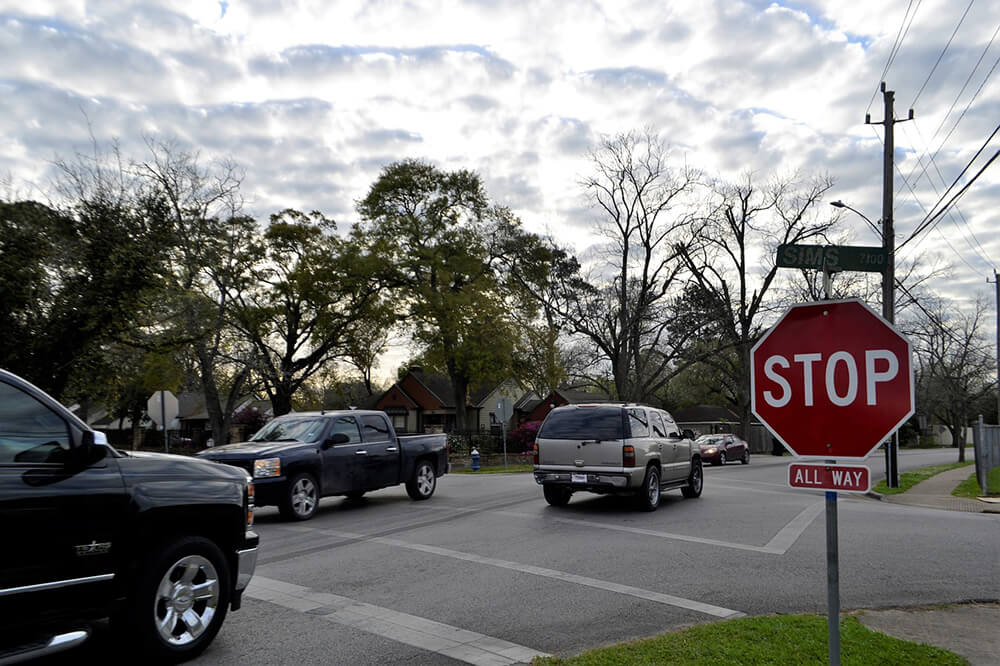
Even though intersections are a common aspect of driving, many people do not handle them with the caution they should. Some intersections are simpler and only have yield or stop signs. Some are complex and have turning lanes, stoplights, or more than two roads. In fact, about half of all crashes occur at or around intersections. Most of these are side impact or T-bone collisions, which have a higher death rate than other crashes. Intersections are especially dangerous for cyclists and pedestrians, as a speeding car might not see them until the last second. No matter what, car accidents at intersections take a toll on all of those involved.
Why Accidents Occur at Intersections
Nobody is a perfect driver, but some are worse than others. Here are the most common reasons accidents occur at intersections:
- Negligence and recklessness. Some drivers don’t care that they have a stop sign or the light has turned red. Others speed and tailgate and switch lanes in an intersection. Their negligence to the rules of the road could cause a serious accident.
- Distracted driving. Drivers who are more focused on their phones or radio than the road are dangerous, especially when approaching an intersection. A driver who is texting might not see that the light has turned red and continue right through an intersection.
- Complex layout. It’s optimal for roads to cross at a 90-degree angle, but sometimes that’s not possible due to city infrastructure or other reasons. If more than two streets are crossing each other, the intersection gets even more complicated. When this happens, your sight into the intersection is reduced and turn angles might be confusing, so it takes extra caution while proceeding through.
- Poor conditions. In rain, fog, snow, or any other inclement weather, drivers who do not take adequate precautions can cause serious accidents on the road and at intersections. It’s important to drive slowly and allow yourself ample room to stop in inclement weather.
What We Can Do to Prevent Accidents at Intersections
There is no foolproof way to keep an accident from happening. As much as we wish every driver were perfect, there will always be distracted, aggressive, and reckless drivers on the road. The best way you can prevent an accident is to be a defensive driver—not just at intersections, but all the time. Being a defensive driver means you never assume another driver is going to do what they’re supposed to do. You don’t assume they’ll stop on red. You don’t assume they’re paying attention. Even though they have their turn signal on, you don’t assume they’re going to turn until they are actually turning. When you’re on the defense and anticipating bad drivers, you’re up to 50% less likely to be involved in an accident.
Here are other ways you can prevent accidents at intersections:
- Be patient
- Reduce distractions
- Don’t speed up at a yellow light
- Count to three before entering an intersection on a green light
- Watch for pedestrians, cyclists, and motorcyclists
While negligent drivers are the main cause of accidents at intersections, there are some steps the state can take to reduce the risk of accidents. Putting in more roundabouts at intersections has proved to reduce car accidents. Clear and updated signs can reduce confusion and make drivers less likely to crash from not knowing their surroundings. Implementing red light cameras that take a picture when a car runs a red light would be a deterrent for drivers. They would receive a ticket and fine in the mail which might keep them from doing it again.
Was a driver negligent through an intersection, causing a collision with you? You’ll need representation to get the compensation you deserve during this physically and emotionally difficult time. Get in touch with DiPiero Simmons McGinley & Bastress to find out how we can help. We can focus on the legal side of things while you focus on recovery.







